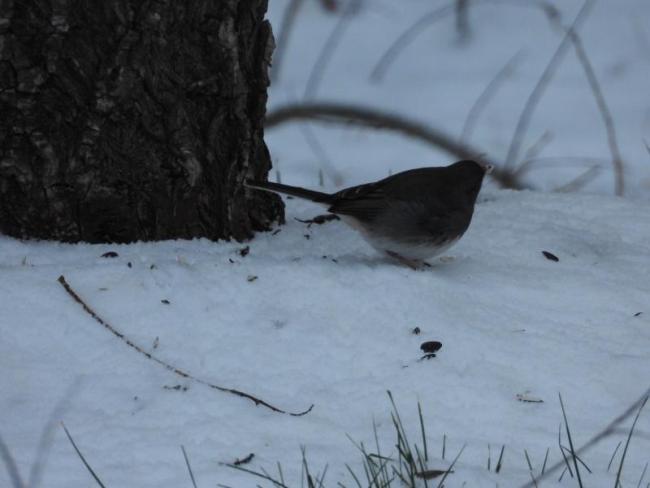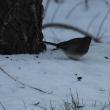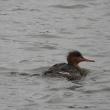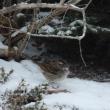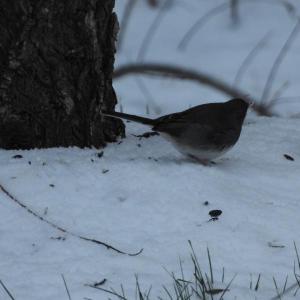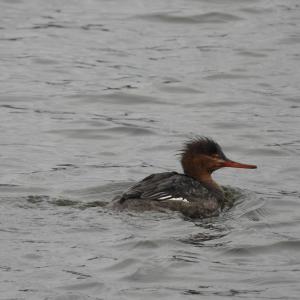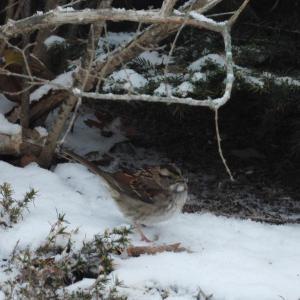Why Birds Don’t Need Sweaters: How They Survive the Winter
Especially on a day like today, with a very high temperature of 2º F and a “feels like” temp of -8º, many people wonder how birds are still alive. There are a few solutions, and most of them are simply the way birds have adapted to live here in Maine, but some of them are very adaptive ways to survive that you probably haven’t heard of yet. The first answer that birds came up with to survive cold winters in Maine is to simply not be here when it gets frigid. This is one of the many reasons birds migrate away from Maine in the fall. However, only about 19% of species in the world migrate, so most birds have found other ways to not die.
The next coping mechanism birds have is a body temperature of about 105º, which helps them stay warmer overall and be able to move around without freezing to death. You may be wondering why their feet don't get cold, and how they are able to walk on the snowy ground for long periods of time. The answer is that their feet have a temperature of about 30º, which saves the birds energy from not having to heat their feet, while also preventing the feet from getting too cold too quickly.
The next two survival skills are fluffing their feathers and building up fat reserves. Fluffing their feathers traps a layer of warm air in between the feathers and the body, which creates sort of a “heated blanket” around them. That’s pretty cool! The other thing birds do is build up their fat reserves during the day, so that they have more energy to spend at night. One way you can provide fat is by feeding the birds! Just make sure you do it safely. At night, they lower their temperatures to be as close to the surrounding temperatures as possible to reduce heat loss. All of the fluffing and fat and body temperature tricks all work well enough (hopefully) that they survive the night.
I hope you learned something today about birds that you didn’t know before, and now have a little more respect for nature’s wonders. As always, be kind and act in the best interest of the birds!
Sources:
Sibley, David Allen. (2020). What It's Like to Be a Bird. Alfred A. Knopf.
Heinrich, Bernd. (2018, December 19). How Do Birds Survive The Winter?. All About Birds.
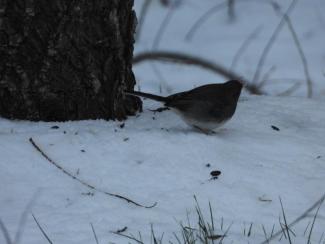 A Dark-eyed Junco looks for food to build up its fat reserves! Photo courtesy Eliza Nickelson.
A Dark-eyed Junco looks for food to build up its fat reserves! Photo courtesy Eliza Nickelson.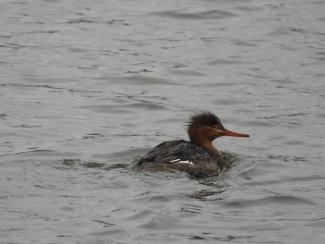 A female Red-breasted Merganser looks for food in Belfast in order to stay healthy and warm! Photo courtesy Eliza Nickelson.
A female Red-breasted Merganser looks for food in Belfast in order to stay healthy and warm! Photo courtesy Eliza Nickelson.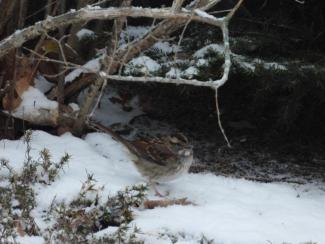 A White-throated Sparrow forages for food to stay warm. Photo courtesy Eliza Nickelson.
A White-throated Sparrow forages for food to stay warm. Photo courtesy Eliza Nickelson.United States

